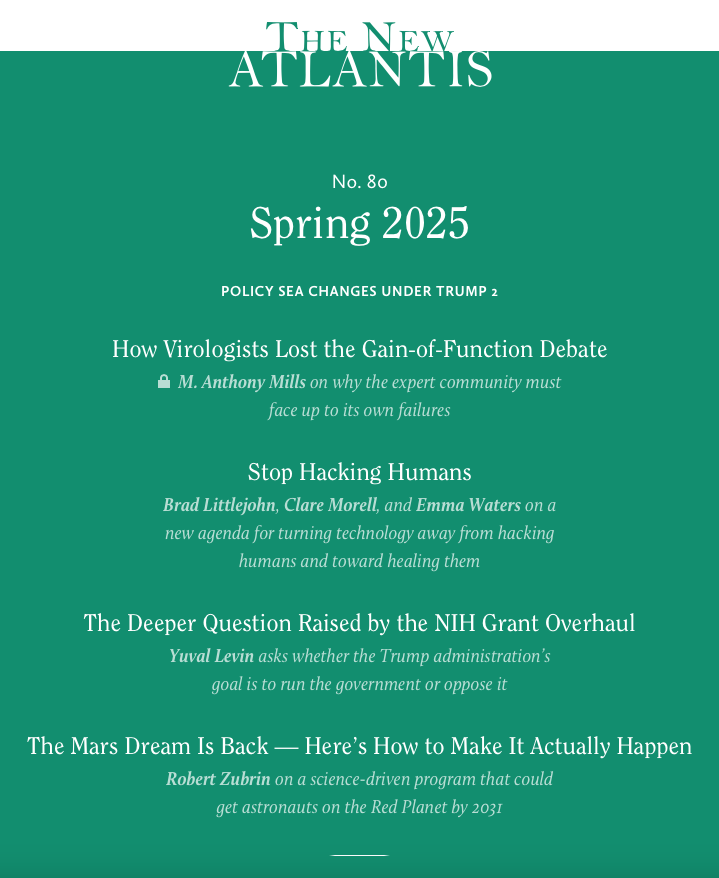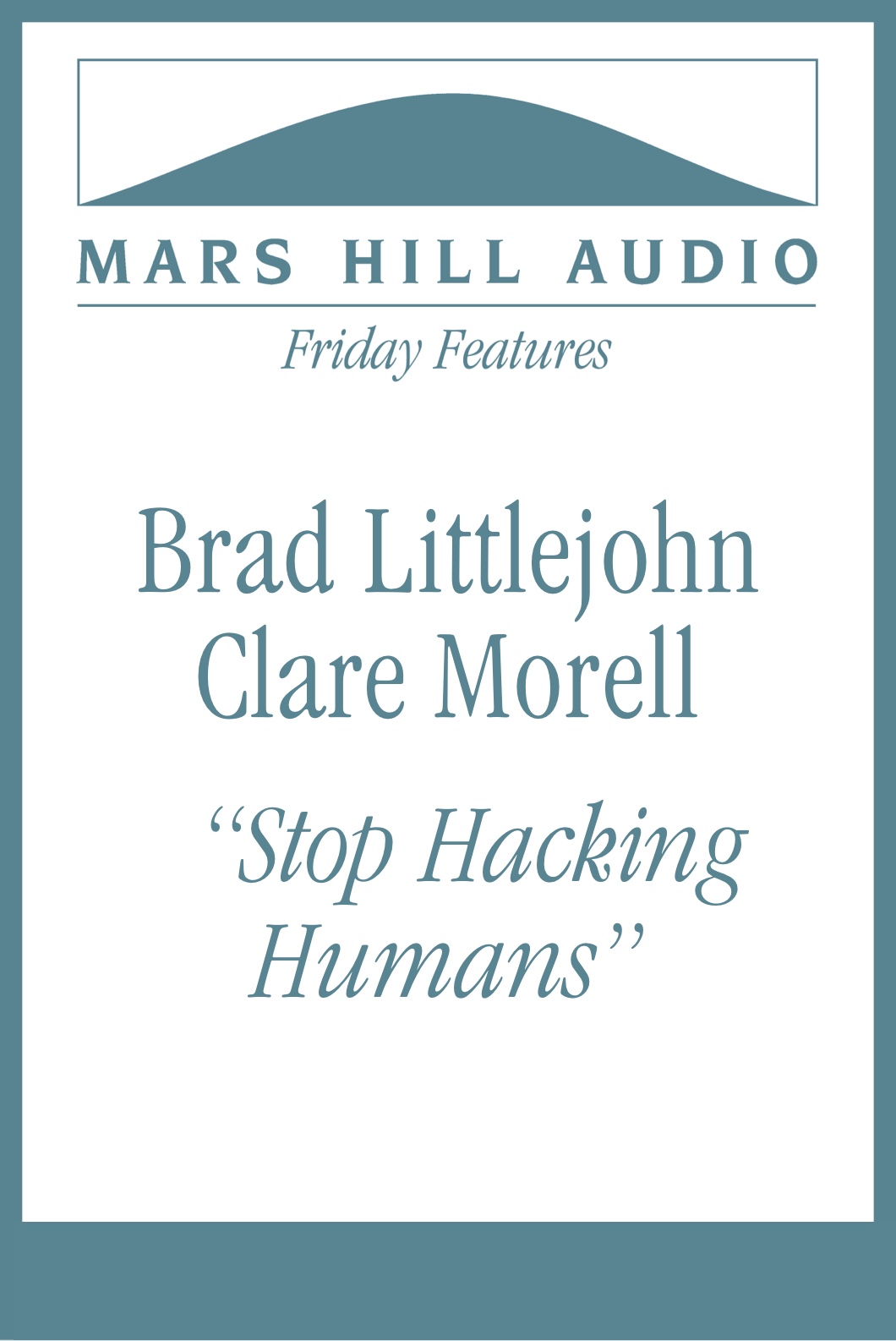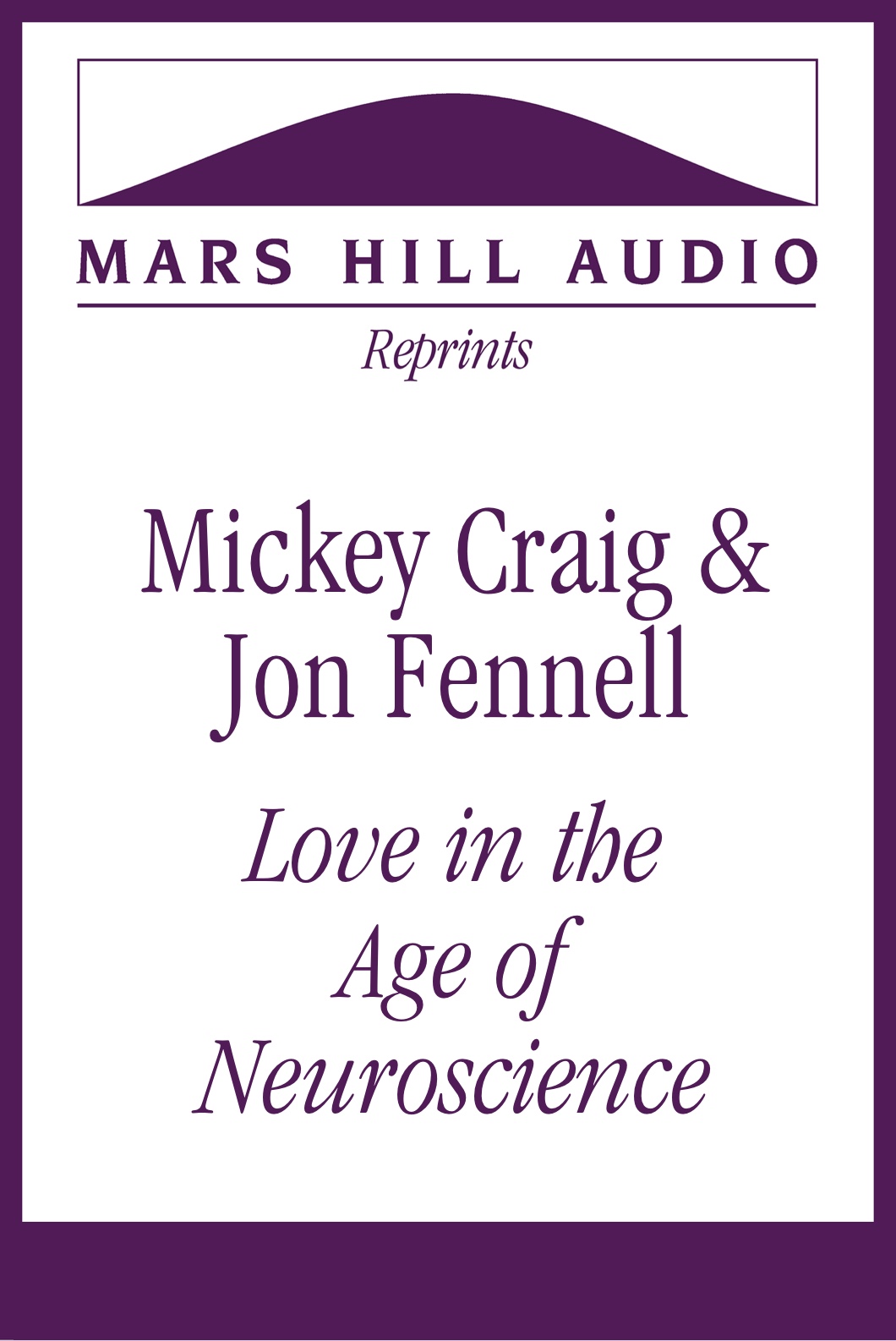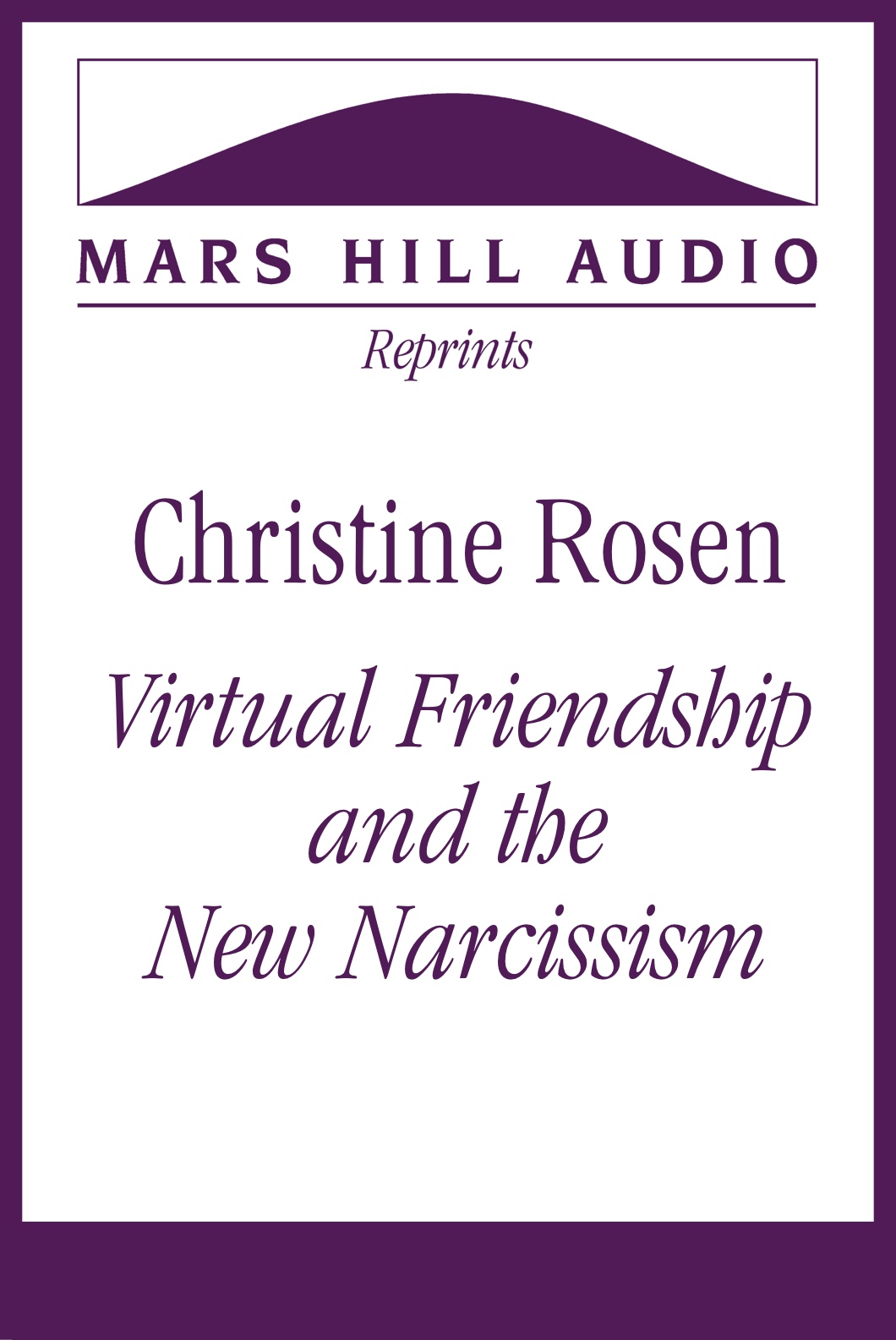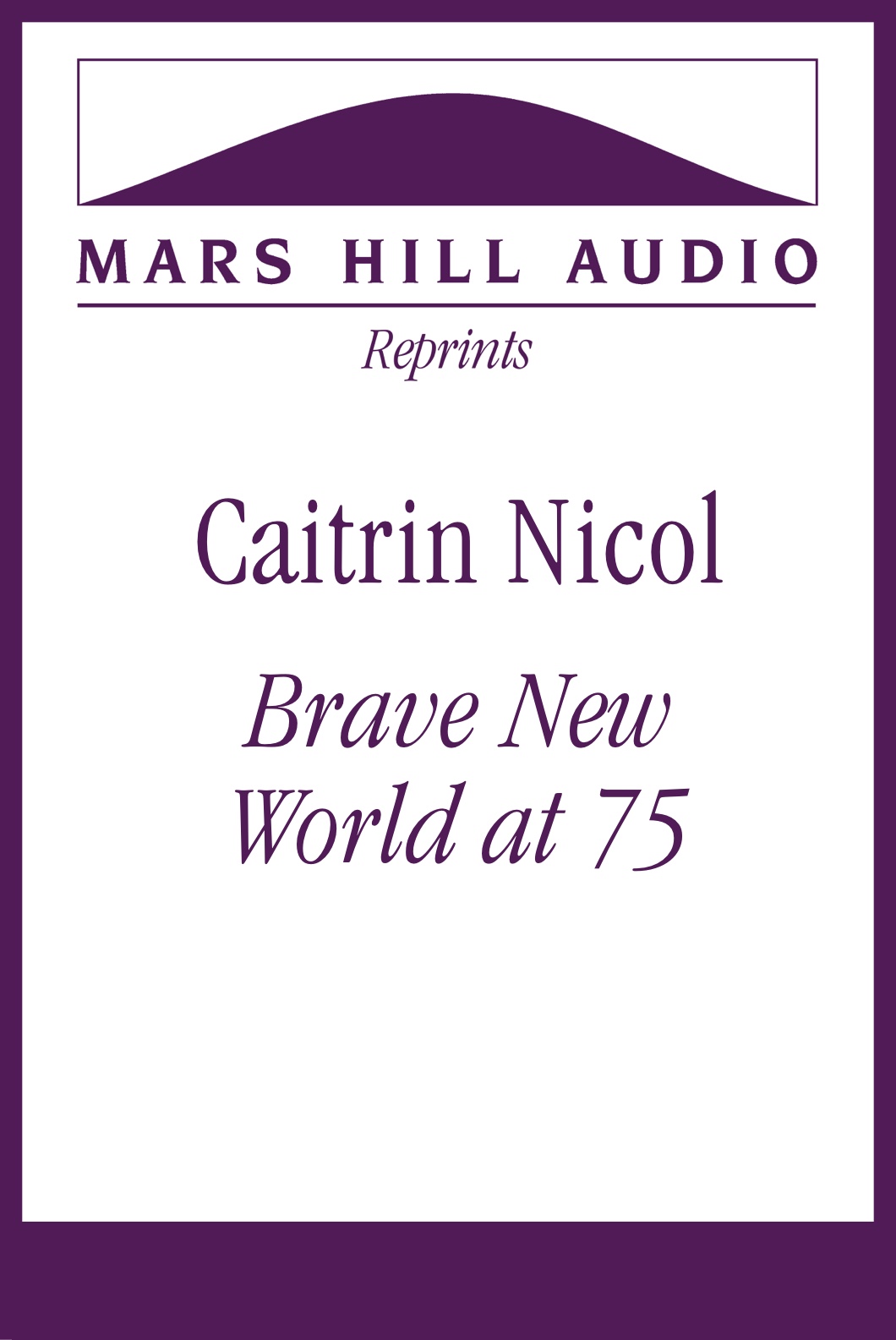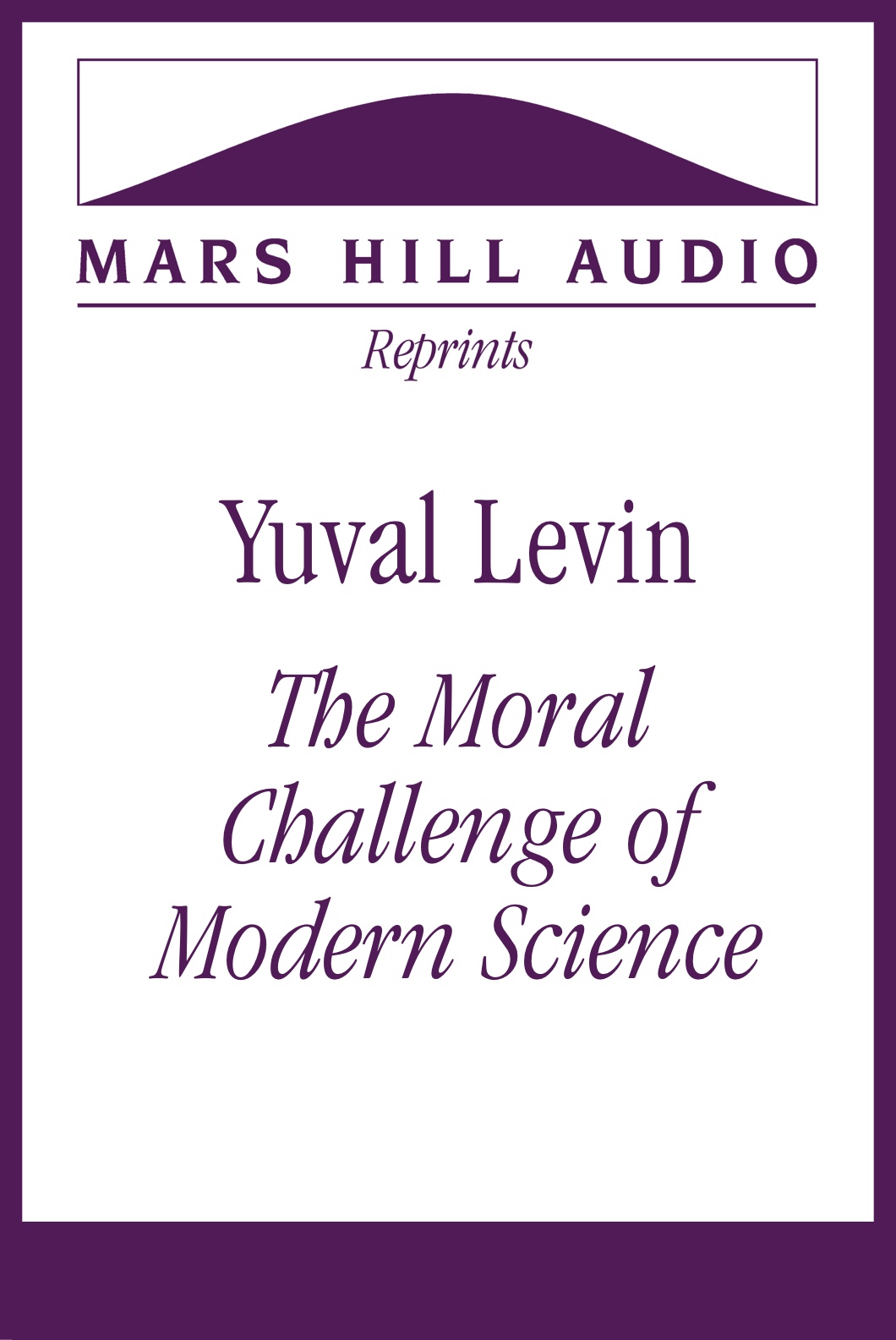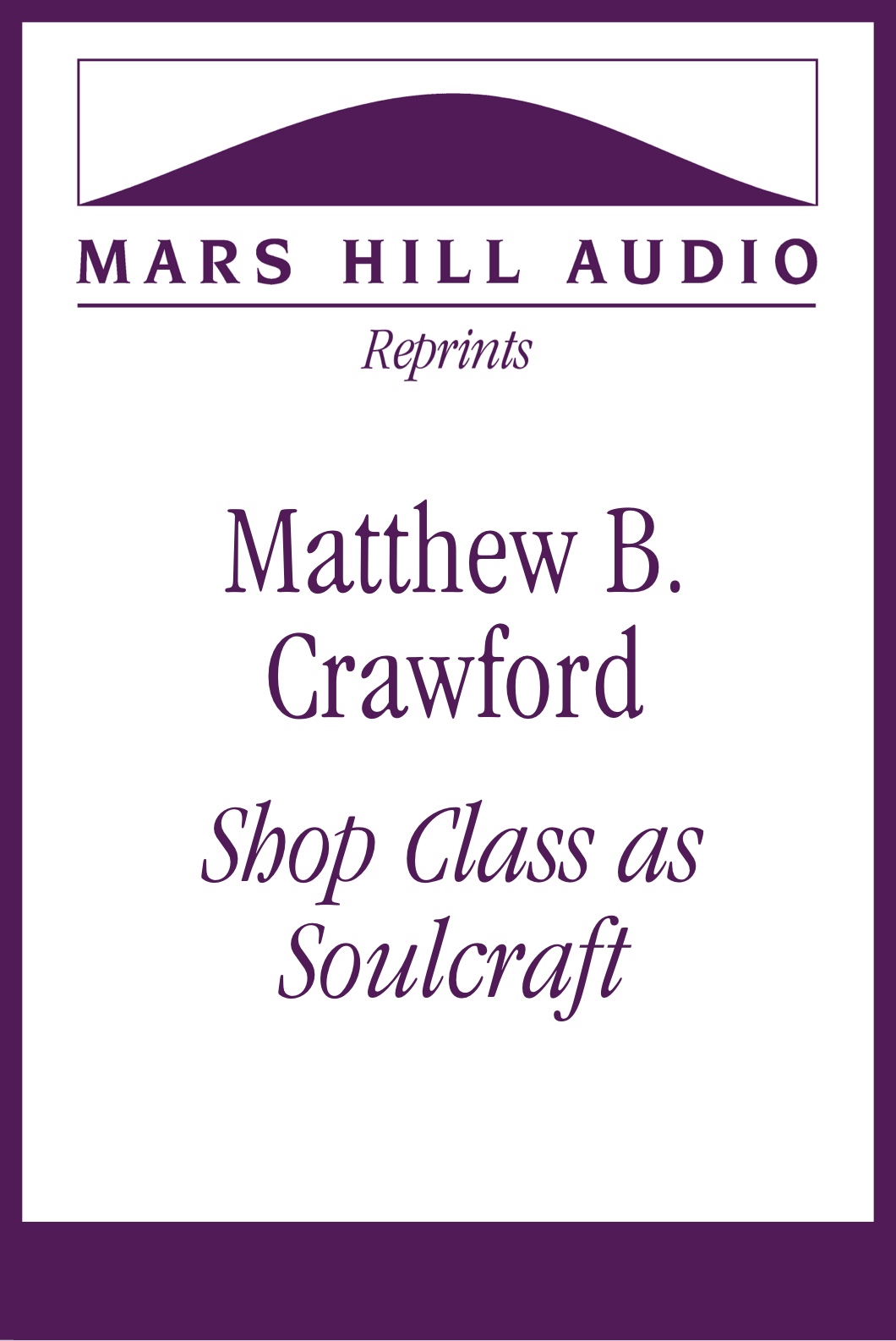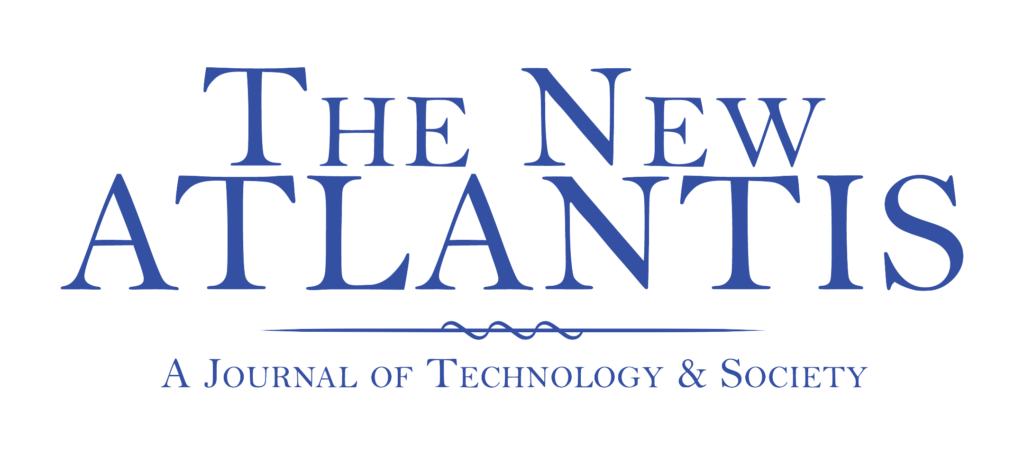
The purpose of The New Atlantis is to offer clarity and guidance at a moment when people seem to be losing confidence in one of the pillars of modern civilization. The New Atlantis hopes to help everyone — as citizens, scientists, policymakers, and human beings — to deal more wisely and more creatively with both the burdens and the blessings of modern science and technology.
Dystopian dread is the shadow of utopian dreams. The hope of The New Atlantis is to help steer away from both — and instead toward a culture in which science and technology work for, not on, human beings. The New Atlantis fosters a richer discourse about science and technology, one that is not limited to categories like autonomy, privacy, rights, corporate misbehavior, and disparate impact, but that also addresses perennial yet pressing concerns about dignity, degradation, the obligations between generations, the nature of the good life, and meaning and purpose.
The New Atlantis is not an academic journal but a public journal of ideas. The journal aims to provide an alternative to the models of experts and academics whose writing is aimed mainly at each other, and of short-form or “explainer” journalism that often fails to engage the deeper questions at stake. Instead, The New Atlantis publishes long-form essays, articles, and reports that are written with insight, accessibility, literary virtuosity, and factual reliability for lay audiences and scholars alike. The editors and authors are scientists, medical doctors, engineers, policy analysts, academics, writers, and scholars.
The New Atlantis is a nonpartisan publication. The subjects addressed in its pages often cut across existing political lines, forcing liberals and conservatives, progressives and libertarians, to revisit their guiding principles.
SELECT CONTENTS:
Yuval Levin
“The Deeper Question Raised by the NIH Grant Overhaul”
Charles C. Mann
“A Spring in Every Kitchen”
Spencer A. Klavan
“You Are Not an Ape-Brained Meat Sack”
